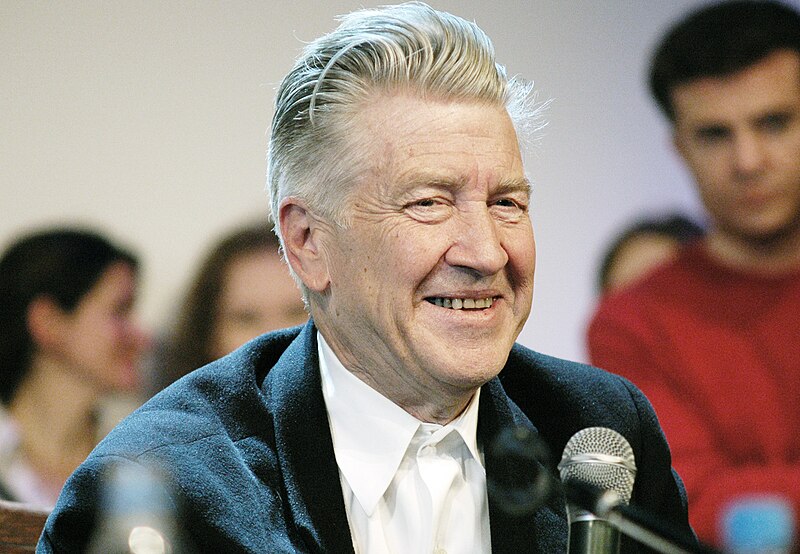

Image by Sasha Kargaltsev via Wikimedia Commons
As each cinephile has by now heard, and lamented, we’ve simply lost a great American filmmaker. From Eraserhead to Blue Velvet to Mulholland Drive to Inland Empire, David Lynch’s features will positively continue to bewilder and encourage generation after generation of aspiring younger auteurs. (There appears even to be a re-evaluation belowmeans of his adaptation of Dune, the box-office catastrophe that turned him away from the Hollywooden machine.) However Lynch was never actually an aspiring younger auteur himself. He actually started his profession as a painter, simply one of many many sides of his artistic existence that we’ve featured through the years right here at Open Culture.
Lynch studied painting on the Pennsylvania Academy of High-quality Arts within the mid-nineteen-sixties, and the city decay of Philadelphia on the time did an important deal to encourage the aesthetic of Eraserhead, which made his identify on the midnight-movie circuit a decade later. When the MTV period fired up in only a few years, he discovered his signature mix of grotesquerie and hyper-normality — what would quickly be termed “Lynchian” — in demand from certain like-minded fileing artists. It was round that very same time that he launched a facet profession as a comic artist, or in any case a comic author, contributing a thoroughly static but compellingly varied strip referred to as The Angriest Dog in the World to the LA Learner from the early eighties by means of the early nineties.
In 1987, the 12 months after the art-house blockbuster that was Blue Velvet set off what Man Maddin later referred to as “the final actual earthquake in American cinema,” Lynch hosted a BBC television series on the history of surrealist film. That ultra-mass medium would become a surprisingly receptive venue for his excessively idiosyncratic artwork: first he made commercials, then he co-created with Mark Frost the ABC mystery sequence Twin Peaks, which practically overtook American popular culture when it debuted in 1990. (See additionally these video essays on the making and meaning of the present.) Not that the phenomenon was limited to the U.S., as evidenced by Lynch’s happening to direct a mini-season of Twin Peaks within the type of canned-coffee commercials for the Japanese market.
Even Mulholland Drive, the picture many consider to be Lynch’s masterpiece, was conceived as a pilot for a TV present. Not lengthy after its launch, he put out extra work in serial type, including the savage automobiletoon Dumbland and the harrowing sitcom homage Rabbits (later incorporated into Inland Empire, his last movie). Within the late two-thousands, he predespatcheded Interview Project, a documalestary net sequence co-created by his son; within the early twenty-tens, he put out his first (however not final) solo music album, Crazy Clown Time. That very same decade, his photographs of old factories went on display, his line of organic coffee came onto the market, his autobiography was published, and his MasterClass went online.
Lynch remained professionallific by means of the COVID-19 pandemic of the twenty-twenties, partly by submiting Los Angeles weather reports from his residence to his YouTube channel. In recent times, he introduced that he would never retire, regardless of living with a case of emphysema so extreme that he might now not direct in any conventional manner. Such are the wages, as he acknowledged, of having smoked since age seven, although he additionally appeared to consider that each behavior and selection in life contributed to his work. Perhaps the smoking did its half to encourage him, like his long practice of Transcendental Meditation or his daily milkshake at Bob’s Big Boy, about all of which he spoke openly in life. But when there’s any particular secret of his formidable creativity, it feels as if he’s taken it with him.
Related Content:
Twin Peaks Actually Explained: A 4‑Hour Video Essay Demystifies It All
David Lynch Teaches You to Cook His Quinoa Recipe in a Strange, Surrealist Video
David Lynch Being a Madman for a Relentless 8 Minutes and 30 Seconds
David Lynch Muses About the Magic of Cinema & Meditation in a New Abstract Short Film
David Lynch Tries to Make a List of the Good Things Happening in the World … and Comes Up Blank
Angelo Badalamenti Reveals How He and David Lynch Composed the Twin Peaks’ “Love Theme”
Primarily based in Seoul, Colin Marshall writes and broadcasts on cities, language, and culture. His tasks embody the Substack newsletter Books on Cities and the ebook The Statemuch less Metropolis: a Stroll by means of Twenty first-Century Los Angeles. Follow him on the social webwork formerly often called Twitter at @colinmarshall.